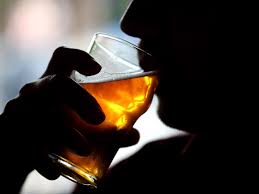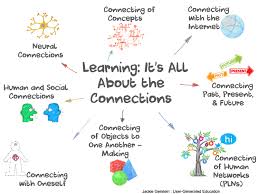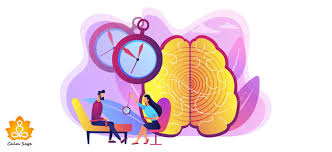The Effects of Drinking Alcohol on Your Health
Alcohol is a widely consumed beverage around the world, often enjoyed in social settings or as a way to relax after a long day. While moderate alcohol consumption may have some health benefits, excessive or regular drinking can have detrimental effects on your overall well-being.
Physical Health
Excessive alcohol consumption can lead to various physical health issues, including liver damage, heart problems, weakened immune system, digestive issues, and an increased risk of certain types of cancer. Long-term heavy drinking can also result in addiction and dependency on alcohol.
Mental Health
Alcohol is a depressant that affects the central nervous system. While it may initially provide feelings of relaxation and euphoria, excessive drinking can lead to mood swings, anxiety, depression, and impaired cognitive function. Chronic alcohol abuse is also linked to an increased risk of mental health disorders.
Social and Behavioral Impact
Drinking alcohol can alter your behavior and judgment, leading to risky decisions, accidents, and impaired relationships with others. Excessive drinking may also contribute to legal issues such as driving under the influence (DUI) or public intoxication.
Sleep Disruption
Although alcohol may help you fall asleep faster initially, it disrupts the quality of your sleep by interfering with the natural sleep cycle. This can result in fragmented sleep patterns, reduced REM sleep (deep sleep), and overall poorer sleep quality.
Conclusion
While enjoying an occasional drink in moderation may not pose significant risks for most individuals, it’s important to be mindful of your alcohol consumption habits and their potential impact on your health. If you find yourself regularly turning to alcohol as a coping mechanism or experiencing negative consequences from drinking, seeking support from healthcare professionals or support groups can help you address any underlying issues and make healthier choices for your well-being.
8 Essential Tips for Safe and Responsible Alcohol Consumption
- Drink in moderation to avoid negative health effects.
- Stay hydrated by drinking water between alcoholic beverages.
- Never drink and drive; always have a designated driver or use alternative transportation.
- Avoid mixing alcohol with medications that can interact negatively.
- Know your limits and listen to your body when it’s telling you to stop.
- Eat before drinking to slow down alcohol absorption into your bloodstream.
- Be aware of the alcohol content in different drinks and pace yourself accordingly.
- If you choose to drink, do so for enjoyment and not as a coping mechanism for stress or problems.
Drink in moderation to avoid negative health effects.
It is essential to drink alcohol in moderation to prevent experiencing negative health effects. Consuming alcohol in controlled amounts can help minimize the risks associated with excessive drinking, such as liver damage, heart problems, mental health issues, and disrupted sleep patterns. By practicing moderation and being mindful of your alcohol intake, you can enjoy the social aspects of drinking while prioritizing your overall well-being and health.
Stay hydrated by drinking water between alcoholic beverages.
To promote responsible drinking and minimize the effects of alcohol on your body, it is advisable to stay hydrated by alternating alcoholic beverages with water. Drinking water between drinks helps to maintain hydration levels, dilute the alcohol in your system, and reduce the risk of dehydration. This practice can also help pace your drinking, allowing you to enjoy social gatherings while being mindful of your alcohol intake and overall well-being.
Never drink and drive; always have a designated driver or use alternative transportation.
It is crucial to prioritize safety when it comes to drinking alcohol. One essential tip to remember is never to drink and drive. To ensure the safety of yourself and others on the road, always have a designated driver who abstains from alcohol or utilize alternative transportation options such as taxis, rideshare services, or public transportation. By making responsible choices and avoiding driving under the influence, you can help prevent accidents, protect lives, and promote a safer community for everyone.
Avoid mixing alcohol with medications that can interact negatively.
It is crucial to avoid mixing alcohol with medications that can interact negatively. Combining alcohol with certain medications can lead to harmful side effects, such as increased drowsiness, impaired coordination, and even liver damage. It is important to read medication labels carefully and consult with a healthcare provider or pharmacist to understand the potential risks of mixing alcohol with specific medications. Prioritizing your health and safety by avoiding this dangerous combination can help prevent serious health complications and ensure the effectiveness of your prescribed treatments.
Know your limits and listen to your body when it’s telling you to stop.
It is crucial to be aware of your limits when it comes to drinking alcohol and to pay attention to your body’s signals indicating when it’s time to stop. Listening to your body’s cues, such as feeling lightheaded, nauseous, or disoriented, can help prevent overconsumption and potential harm. By practicing mindfulness and self-awareness while drinking, you can better regulate your alcohol intake and prioritize your health and well-being.
Eat before drinking to slow down alcohol absorption into your bloodstream.
Eating before drinking is a helpful tip to slow down the absorption of alcohol into your bloodstream. Consuming food, especially those high in protein and fat, can help delay the emptying of your stomach and the absorption of alcohol into your system. This practice can reduce the peak blood alcohol concentration levels, potentially lessening the effects of alcohol and promoting safer drinking habits. Remember to pair your alcoholic beverages with a balanced meal to enjoy social gatherings responsibly while taking care of your health.
Be aware of the alcohol content in different drinks and pace yourself accordingly.
It is essential to be mindful of the alcohol content in various beverages and adjust your drinking pace accordingly. Different alcoholic drinks have varying alcohol concentrations, so understanding these differences can help you make informed decisions about how much to consume. By pacing yourself appropriately and being aware of the strength of the drinks you are consuming, you can better control your alcohol intake and ensure a safer and more enjoyable drinking experience.
If you choose to drink, do so for enjoyment and not as a coping mechanism for stress or problems.
Choosing to consume alcohol should be a decision made for enjoyment rather than using it as a coping mechanism for stress or problems. Using alcohol as a way to deal with emotional difficulties or challenges can lead to dependency and negative consequences on both physical and mental health. It is important to cultivate healthier coping strategies, such as seeking support from loved ones, practicing mindfulness, engaging in physical activity, or seeking professional help when needed, to address underlying issues effectively.




